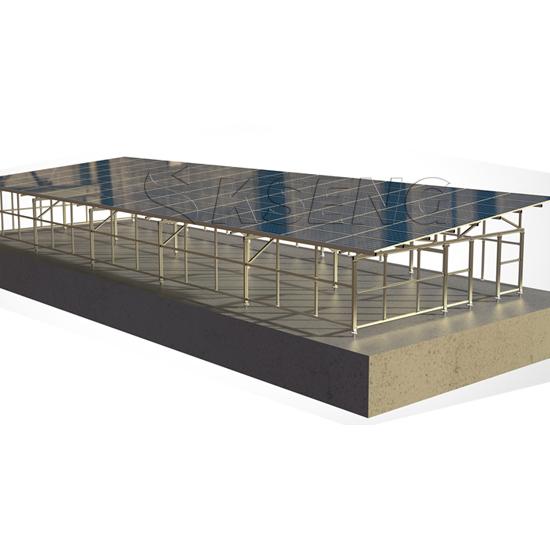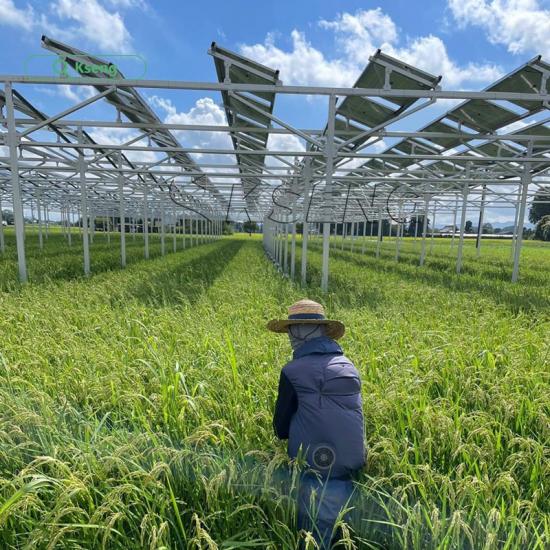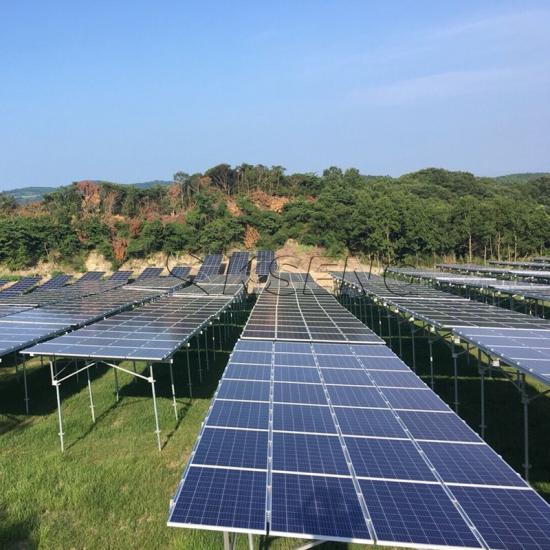What is the lifespan of a solar farm?
Jun 27, 2024
Solar farms, also known as solar power plants, are large-scale installations of solar panels that generate electricity from sunlight. One common question that arises in the renewable energy industry is, "What is the lifespan of a solar farm?" In this article, we will explore the factors that influence the lifespan of a solar farm and the typical duration of its operation.
 The lifespan of a solar farm is influenced by various factors, including the quality of the solar panels, the design and construction of the system, maintenance practices, and environmental conditions. High-quality solar panels can have a lifespan of 25 to 30 years or more. However, the overall lifespan of a solar farm system is often determined by the weakest component in the system.
The lifespan of a solar farm is influenced by various factors, including the quality of the solar panels, the design and construction of the system, maintenance practices, and environmental conditions. High-quality solar panels can have a lifespan of 25 to 30 years or more. However, the overall lifespan of a solar farm system is often determined by the weakest component in the system.
 Proper design and construction of the solar farm structure system are essential for ensuring its longevity. Factors such as the orientation and tilt of the solar panels, the type of mounting system used, and the quality of the electrical components can impact the overall performance and durability of the system. Regular maintenance, including cleaning the panels, inspecting the wiring, and monitoring system performance, can also extend the lifespan of a solar farm.
Environmental conditions, such as temperature fluctuations, humidity, and exposure to sunlight, can affect the performance and lifespan of solar panels. Proper site selection and installation practices can help mitigate these factors and optimize the efficiency and longevity of the solar farm mounting system.
Proper design and construction of the solar farm structure system are essential for ensuring its longevity. Factors such as the orientation and tilt of the solar panels, the type of mounting system used, and the quality of the electrical components can impact the overall performance and durability of the system. Regular maintenance, including cleaning the panels, inspecting the wiring, and monitoring system performance, can also extend the lifespan of a solar farm.
Environmental conditions, such as temperature fluctuations, humidity, and exposure to sunlight, can affect the performance and lifespan of solar panels. Proper site selection and installation practices can help mitigate these factors and optimize the efficiency and longevity of the solar farm mounting system.
 In general, a well-designed and properly maintained solar farm can have a lifespan of 25 to 30 years or more. As technology advances and solar panel efficiency improves, the lifespan of solar farms may continue to increase. With proper care and maintenance, solar farms can provide clean and renewable energy for decades, contributing to a sustainable energy future.
In general, a well-designed and properly maintained solar farm can have a lifespan of 25 to 30 years or more. As technology advances and solar panel efficiency improves, the lifespan of solar farms may continue to increase. With proper care and maintenance, solar farms can provide clean and renewable energy for decades, contributing to a sustainable energy future.


